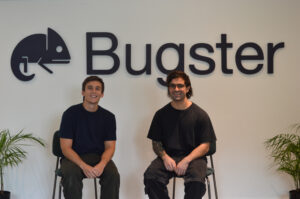
January 23, 2020
This week we had our Morning Coffee with Maik Schaefer, Founder & CEO of Mango Life
When Adam Neumann, the founder and CEO, left WeWork with a golden parachute, he not only impacted his company and investors. The whole story—which led to his dismissal—triggered a change of mentality. It seemed to confirm some of the ugliest (mis)conceptions about venture-backed, “Silicon Valley”-type (even though WeWork is based in New York) startups and scaleups:
The only part that was missing (some commentators seem to be sad about it) was the mistreatment of employees, sub-contractors, and/or the community they operated in.
Let’s be clear: the failure of WeWork’s IPO was a good thing. It showed that the public that the market is functioning. The scrutiny over the IPO’s prospectus led to a healthy discussion about what had really been going on at WeWork, its business model and its founder’s eccentricity.
The broader discussion surrounding profitability vs. growth, founder-freedom vs. oversight, is one that needs to be had constantly, both regarding individual companies as well the startup landscape at large. Especially in the US, private markets may need corrections.
Although my compassion for venture capitalists (VCs) losing money in startup investments is limited, from my perspective, the criticism voiced by journalists, consultants, executives from big companies, often-times seems to be motivated by envy.
From the outside, it seems that these young startup guys with their cash-burning machines are able to get money easily. All the while, the critics had to climb the corporate ladder with blood, sweat, and tears (executives); by selling “the old fashioned way” knocking on doors (consultants); or are doomed to just observe from the outside (journalists).
Let me assure you: raising money from VCs is anything but easy—even in the US—. For every person that manages to make it, there are literally thousands who don’t and have to close shop.
Anyway, the debate is here and it’s healthy—for the most part. There are unintended repercussions for less mature VC markets, like those in Latin America.
We in the region were on the right track. More VCs were opening up, withdrawing money from institutional investors like pension funds, family offices, and larger corporates. They went on to channel it into startups.
Within the past few years, interest from students in starting their own company picked up, leading to growth on both sides, both in terms of the number of startups and the available funding. And we haven’t even talked about the market opportunities, these include the rising middle-class and the sub-par service standards in numerous verticals due to lack of innovation and customer-orientation from traditional players.
However, even before the WeWork debacle, there were troubling macro-trends in the environment. From lackluster overall economic growth (to say the least) across all major markets to unfavorable political situations (Mexico, Argentina, lately Chile).
Combine this with the new narrative that startups are mostly money-trashing charades, and it leads to a situation where VCs are having increasing difficulties to raise money. And this effect trickles down to startups.
Let me be clearer. We do not have too much venture capital in LatAm. We do not need a correction of private markets. Quite the contrary: we need more institutional investors willing to invest in VCs, so that it can trickle down to startups.
I believe a strong entrepreneurial ecosystem is good for society. It unleashes innovation that established players sometimes lack—whether it be to work on hard challenges (financial inclusion, energy transformation, mobility…), to create jobs and provide opportunities for young people, or to experiment in order to find what they really love.
What always helps are success stories. We all have an interest in seeing our startups succeed. We all want to see growing revenues. We all want to make customers happy, raise money, and, in the end, find a suitable “exit.”
So, please let’s be careful about how we shape the narrative here in Latin America, particularly in the wake of the WeWork episode, because the collateral damage is already there. Let’s try to differentiate and refrain from generalized (or US-centric) statements, and putting all startups in the same bucket.
As startups, let’s be conscious about what is happening with regards to the broader narrative and contribute our share to “professionalize” how we are perceived. We, literally, have a vital interest in seeing that VCs can justify investments in us.
Just my 5 cents.
Maik Schaefer is the founder and CEO of InsurTech Mango Life, which is his first entrepreneurial adventure after a decade in the insurance sector. He is from Germany but fell in love with Mexico years ago and got married there in 2019. He lives in León, Gto, and can be reached at [email protected].

Por Stiven Cartagena
September 15, 2025
December 4, 2024
November 20, 2024